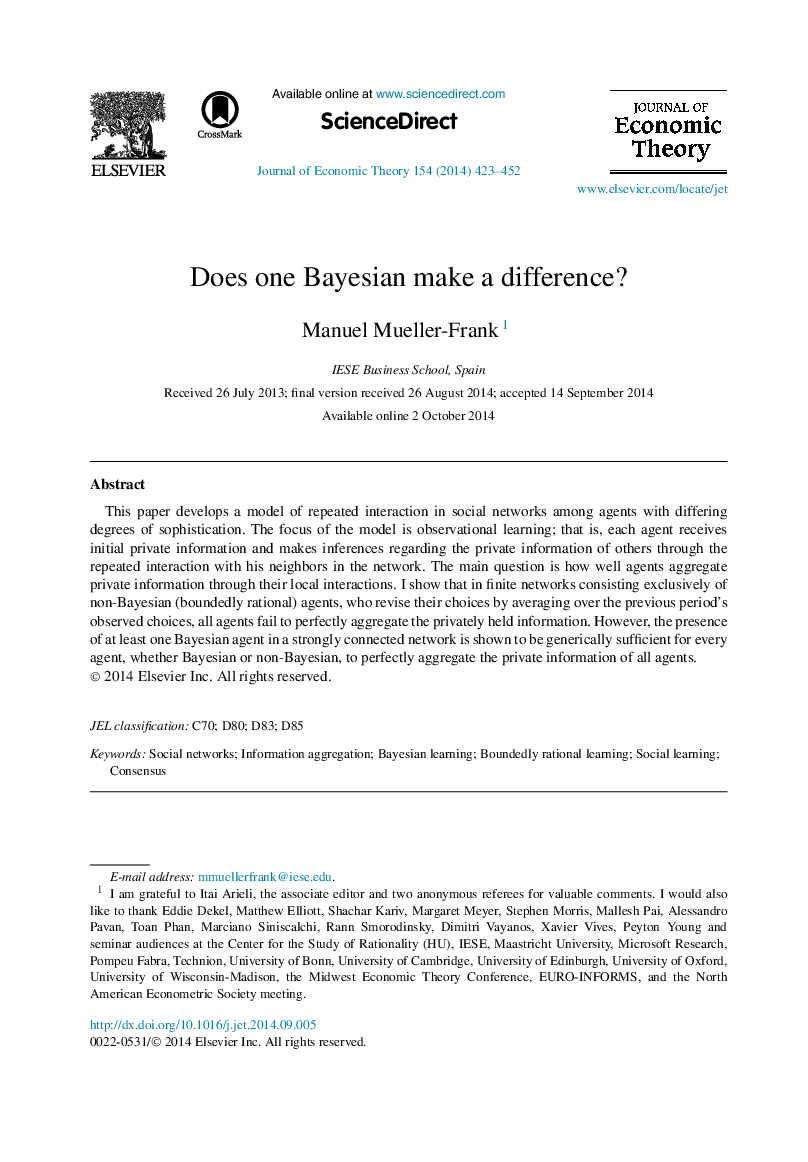| Article ID | Journal | Published Year | Pages | File Type |
|---|---|---|---|---|
| 956795 | Journal of Economic Theory | 2014 | 30 Pages |
Abstract
This paper develops a model of repeated interaction in social networks among agents with differing degrees of sophistication. The focus of the model is observational learning; that is, each agent receives initial private information and makes inferences regarding the private information of others through the repeated interaction with his neighbors in the network. The main question is how well agents aggregate private information through their local interactions. I show that in finite networks consisting exclusively of non-Bayesian (boundedly rational) agents, who revise their choices by averaging over the previous period's observed choices, all agents fail to perfectly aggregate the privately held information. However, the presence of at least one Bayesian agent in a strongly connected network is shown to be generically sufficient for every agent, whether Bayesian or non-Bayesian, to perfectly aggregate the private information of all agents.
Keywords
Related Topics
Social Sciences and Humanities
Economics, Econometrics and Finance
Economics and Econometrics
Authors
Manuel Mueller-Frank,
